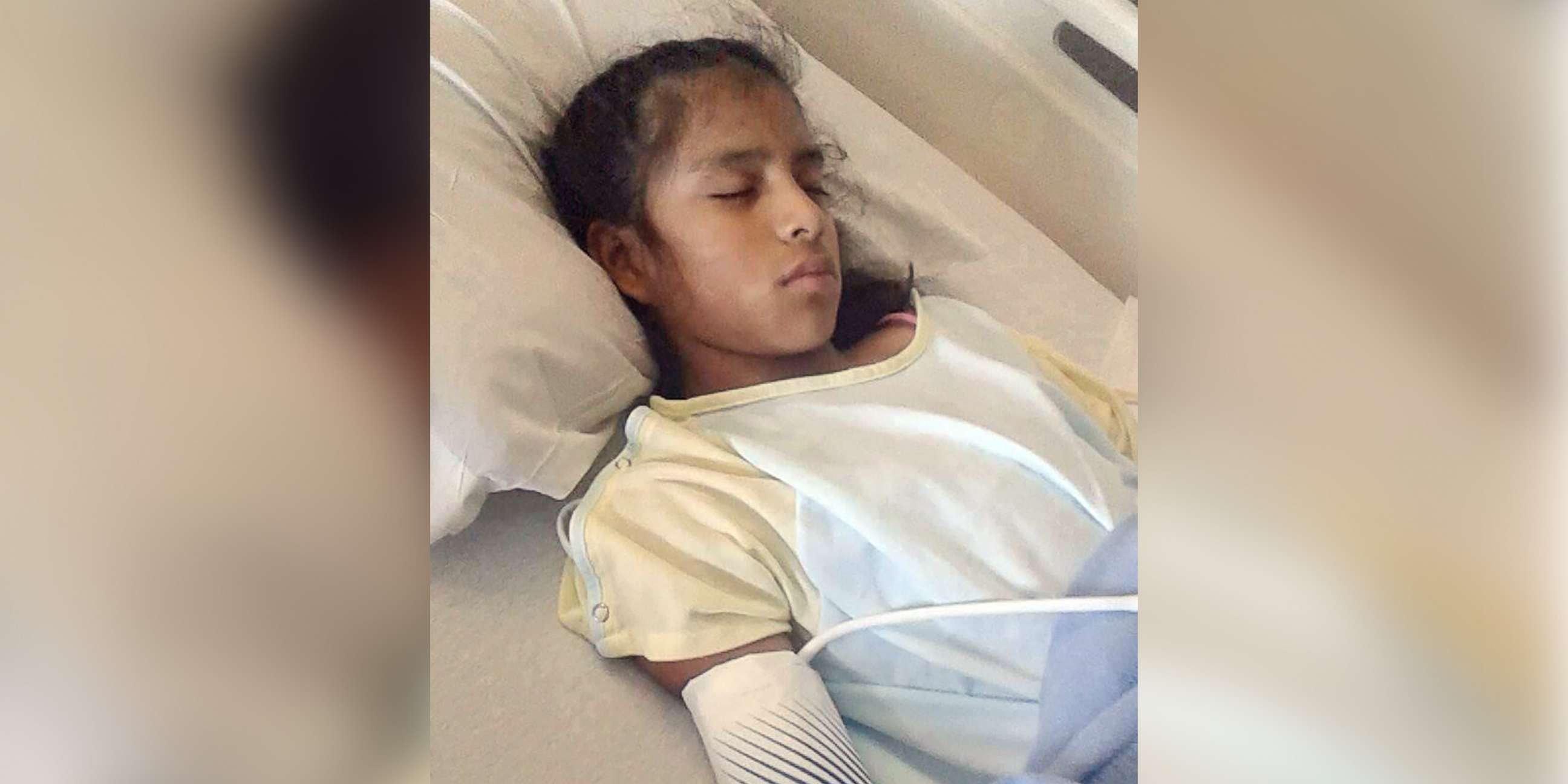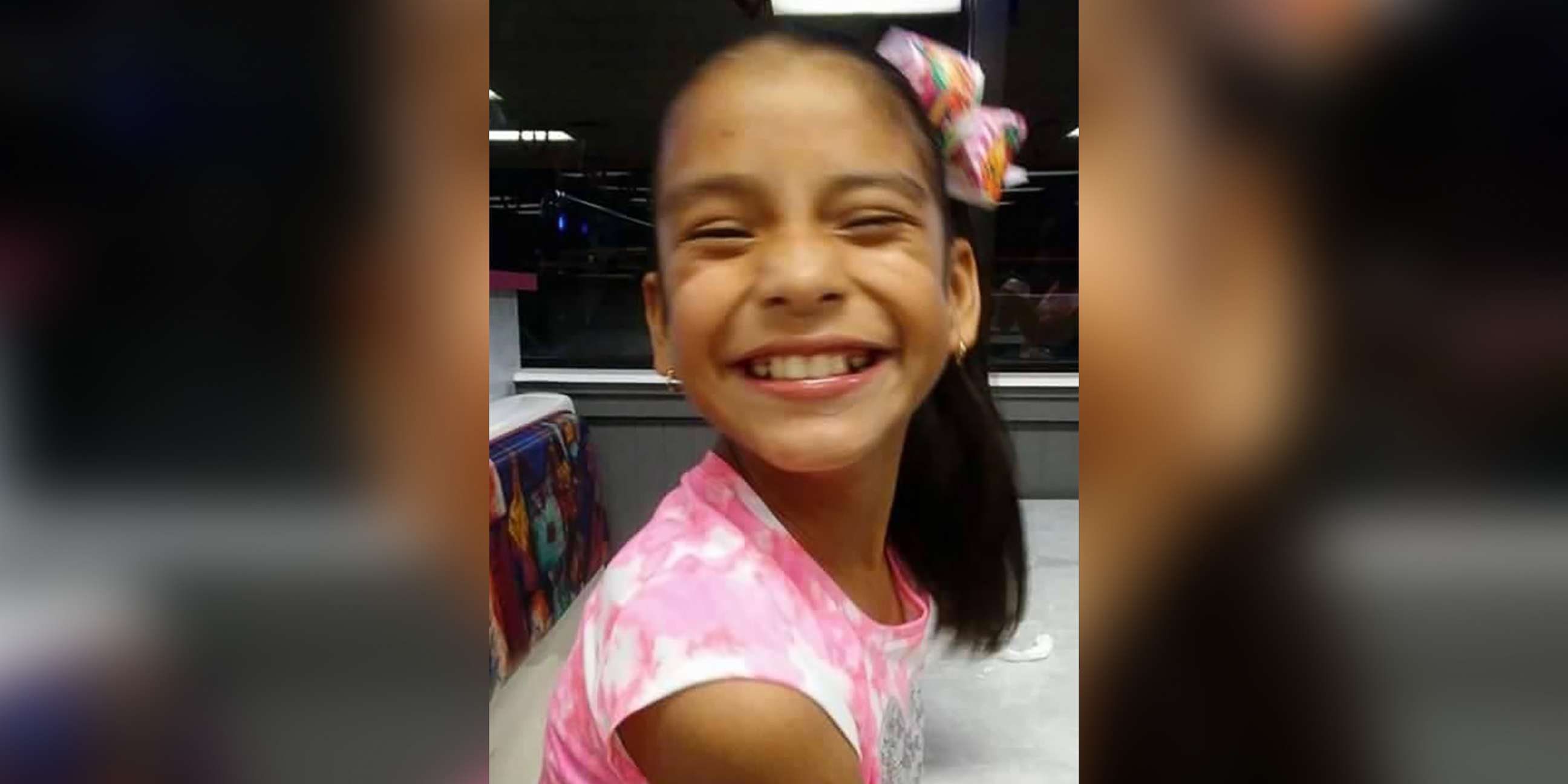ACLU sues Trump administration for detaining 10-year-old girl with cerebral palsy
Rosa Maria Hernandez has been living in a children's shelter in San Antonio.
— -- The American Civil Liberties Union has filed a lawsuit against the Trump administration for its ongoing detention of a 10-year-old undocumented girl with cerebral palsy who was separated from her parents after undergoing surgery.
Rosa Maria Hernandez has been held at a children's shelter in San Antonio, Texas, more than 150 miles from her family, since undergoing gallbladder surgery last week. The ACLU said the shelter is not equipped to care for Rosa Maria, who has the cognitive development of a 6 year old.
"Rosa Maria has always been under the care of her parents. Her medical condition requires constant attention, and she is completely dependent on her mother," according to the complaint filed Tuesday by the ACLU. "At home, Rosa Maria receives both specialized and ongoing services at her elementary school and her mother’s care and support, including home-based therapy she needs to thrive. Without her mother and supportive community of services, her health and developmental progress will suffer."
The ACLU had previously sent a letter to officials giving them a deadline of 2 p.m. on Tuesday to release Rosa Maria before filing the suit.

The lawsuit was filed on behalf of Rosa Maria and her mother, Felipa De Cruz, against officials from the Office of Refugee Resettlement, the Administration for Children and Families, the Department of Health and Human Services, U.S. Border Patrol, U.S. Customs and Border Protection, the Department of Homeland Security, and the BCFS Health and Human Services SAC ICS Shelter, where she is currently being held.
"It’s painful for me to know that my daughter is there and I can’t help her," Felipa De La Cruz said last week through a translator on a call with reporters. "I would like to have her near me so I could be the one who is helping her and supporting her right now when she needs me the most."
On Oct. 24, Rosa Maria was traveling with her cousin, a U.S. citizen, from Laredo, Texas, to Driscoll Children's Hospital in Corpus Christi when the vehicle was stopped at an interior border checkpoint in Freer, Texas, the family said. De La Cruz had not traveled to the hospital with Rosa Maria because of her own immigration status, an attorney from the ACLU said.
"Despite being informed of [Rosa Maria Hernandez's] scheduled surgery, the agents detained them at the checkpoint for approximately 30 minutes before allowing them to proceed. As they left the checkpoint, a Border Patrol agent said that agents would be following the vehicle transporting [Rosa Maria] and that after 'the girl' was released from the hospital, she would be 'processed' for deportation," according to the complaint.
Border patrol agents followed Rosa Maria to the hospital and "shadowed her every move," according to the complaint.
A Customs and Border Protection spokesperson said Rosa Maria was escorted by Border Patrol agents to the hospital to undergo surgery and the agents remained with her until she was transferred to the Health and Human Services Office of Refugees and Resettlement.
Hospitals and other medical treatment facilities are considered "sensitive locations" where enforcement actions "should generally be avoided, and require either prior approval from an appropriate supervisory official or exigent circumstances necessitating immediate action."
Border patrol agents refused to release Rosa Maria to her mother, who is also undocumented, or to family members. Rosa Maria was then referred to the Office of Refugee Resettlement (ORR), which placed her in a children's shelter, the family's attorney said.
"But rather than permit [Rosa Maria] to return to her family once she was discharged after surgery, as her doctors had recommended, the agents arrested [Rosa Maria] directly from her hospital bed, without a warrant, for the purpose of initiating removal proceedings to deport her from the United States," the complaint states.
Undocumented children are held in custody by ORR, which is run by the Department of Health and Human Services (HHS). But the lawsuit filed by the ACLU claims "that the government cannot render [Rosa Maria] an unaccompanied child merely by virtue of her arrest by CBP, and ORR cannot keep her in its custody knowing that she has been forcibly removed from her existing custodial relationship."

Following her detention, her supporters took to Twitter to denounce Rosa Maria's treatment using the hashtag #FreeRosa. Disability rights, legal advocacy and reproductive rights groups have also spoken out about her case.
"A disabled elementary school student, who has lived in Texas since she was 3 months old, is not a threat to our country and should not be in federal custody," the Autistic Self Advocacy Network said in a statement Saturday. "We also recognize that what has happened to Rosa Maria is not an isolated incident, but rather just one of countless instances of injustice perpetuated by the Trump administration’s heartless immigration policy and deportation machine."
Thomas A. Saenz, president and general counsel of the Mexican American Legal Defense and Educational Fund, issued a statement on Monday.
"Targeting the patient in an ambulance at a checkpoint; detailing agents to follow a child to a hospital surgery as though she were a violent criminal; taking a disabled minor from emergency surgery to a detention center. This case, perhaps more than any other, exposes the lie in Donald Trump’s assertion that the administration would target criminals for immigration enforcement action," Saenz wrote. "Rosa Maria Hernandez should be immediately released to her family. And patients in ambulances, particularly children, should henceforth be completely off limits in immigration enforcement."
NARAL Pro-Choice America, a reproductive rights advocacy group, said the treatment she had received was "anything BUT pro-life."
The Office of Refugee Resettlement had not responded to ABC News' request for comment at the time of publication. As matter of policy, Customs and Border Protection, which oversees U.S. Border Patrol, does not comment on pending litigation.



